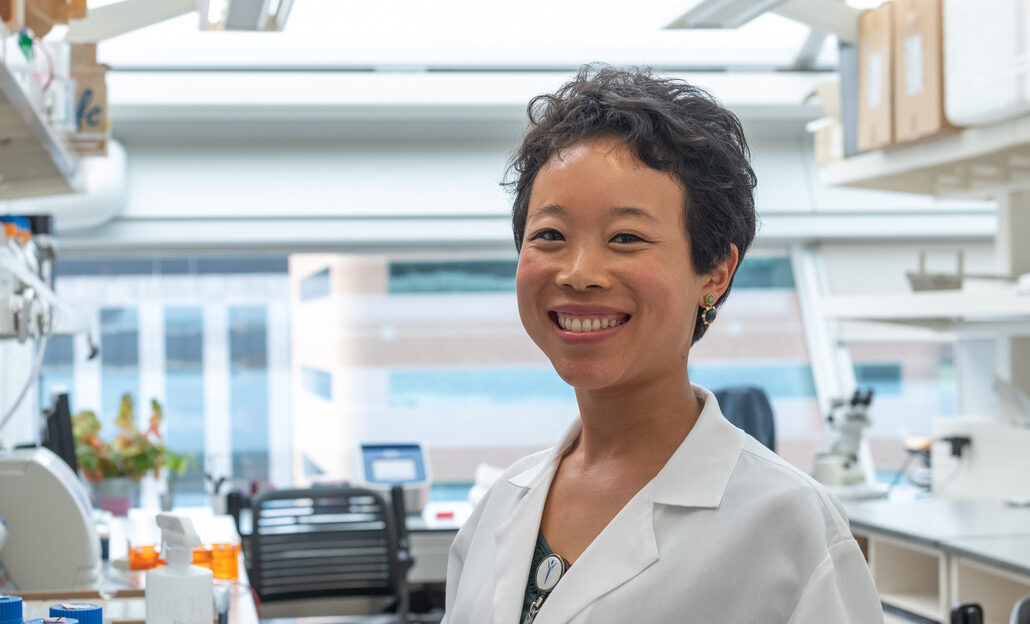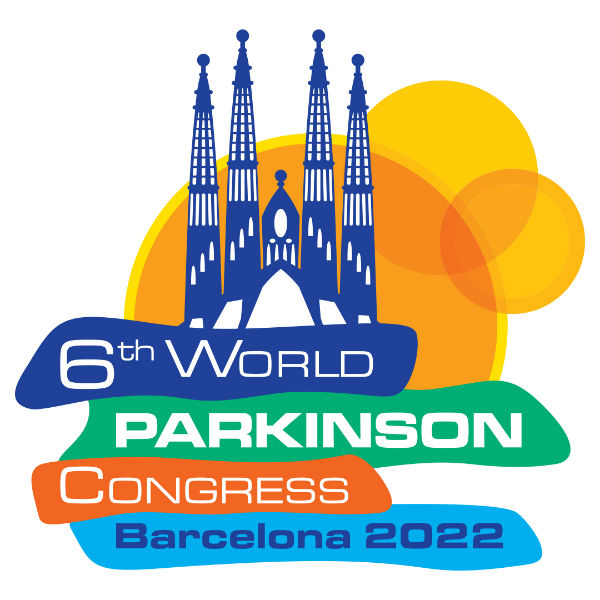Q&A with World Parkinson Congress 2022 Science Ambassador Dr. Xi Chen
September 30, 2020

Recently, World Parkinson Congress named Van Andel Institute research scientist Xi Chen, Ph.D., as a WPC 2022 Science Ambassador. In this role, Chen will work with seven other Science Ambassadors to increase outreach among global communities and encourage other scientists to attend the 2022 Congress in Barcelona, Spain, June 7–10, 2022.

Held every three years, World Parkinson Congress provides an international forum for dialogue on the latest scientific discoveries, clinical practices and care partner initiatives related to Parkinson’s disease. Each Congress aims to be inclusive of all those touched by the disease.
We caught up with Dr. Chen to discuss her role as a WPC Ambassador and what it means for her research at VAI and Parkinson’s research as a whole.
Q: What does your role as a WPC 2022 Ambassador mean to you?
XC: After the 2010 WPC in Glasgow, the organization began selecting Parkinson Ambassadors for each Congress from a pool of applicants who all live with Parkinson’s and who had previously attended at least one WPC. These Ambassadors drum up support within their communities and help others understand the value in attending a World Parkinson Congress.
The 2022 WPC will be the first year featuring Science Ambassadors, and I’m thrilled to be part of the first cohort. The goal — to spread information about WPC to relevant communities across the world — remains the same, but as a Science Ambassador, I will help to explain to other scientists why WPC should be on their list of conferences to attend in 2022.
As Science Ambassadors, we will meet monthly from now until the Congress to collaborate on how to successfully increase outreach and make WPC 2022 the most well-attended yet. We want to make sure local communities know about this conference and, while VAI and other West Michigan scientists are very aware of WPC, I’m working to expand that awareness to other universities and organizations across Michigan and hopefully beyond.
Q: What was your first experience at a World Parkinson Congress like?
XC: I first attended a WPC in 2019 in Kyoto, Japan. I have plenty of remarkable memories from that year, but most powerful were my exchanges with representatives from different organizations from across the globe, and especially with people living with Parkinson’s.
During the opening ceremony, a group of people joined my table, and a young man in his early 20s sat next to me. As we talked, he shared with me his experience of being diagnosed with early-onset Parkinson’s when he was only 16 years old. What inspired me most were his positivity and his determination — to stay active, to serve as an advocate for those with Parkinson’s, to experience the world.
Meeting this man and others with stories like his at WPC makes the small fraction that I contribute to the collective research feel all the more meaningful. Each year’s Congress is a huge collective of very diverse people — patients, clinicians and researchers alike — but the insights provided by the patients truly enrich what I do every day in the lab.
Q: What would you tell a scientist who is considering attending WPC for the first time?
XC: Although plenty of each Congress focuses on people living with Parkinson’s, there is also high level of basic science sessions. Scientists often worry that the clinical aspects will outweigh research, but WPC’s planning committees make sure there is a balance. Each Congress is built around a four-day-long, top-level Scientific Program and Wellness Way Program. It’s extremely educational and worth the time of any scientist studying Parkinson’s.
For me, it’s encouraging when people with different passions and different cultures who all have a connection to Parkinson’s gather to share their stories, experiences and insights. There are roundtable discussions available, as well as wider exposure to diverse specializations that scientists don’t often encounter when attending meetings in only their own country or community.
Q: How will your experience as a WPC Ambassador support or inform Parkinson’s research in the future?
XC: I want to work as best as I can to encourage as many scientists as possible to attend. If we can get a higher number of scientists who study Parkinson’s to gather in one location, as one group, who knows what breakthroughs may surface?
I am excited to connect with scientists who may have reservations about finding the time or funds to attend an international Congress, and to share with them my own experience and how worth the time and money it is for them to attend.
Years ago, when I decided to pursue a postdoctoral fellowship, I discovered VAI and quickly knew I wanted to apply because I was ready to learn something new and expand my understanding of neurodegenerative diseases like Parkinson’s. At the Institute and with my mentor Dr. Darren Moore, I had the space to learn and grow, and at WPC 2019, I found a similar atmosphere that encourages learning, collaboration and the exchange of ideas. I want other scientists to experience that.
Q: What are you most looking forward to at the 2022 WPC?
XC: It’s rewarding to know that my actions as a Science Ambassador will have a direct impact on WPC 2022. Being a participant in 2019 was incredible but having a hand in the event’s success and working with others to spread awareness for the Congress adds a new layer of excitement and pride for me. I’m looking forward to what will come of our cohort’s hard work and dedication.
